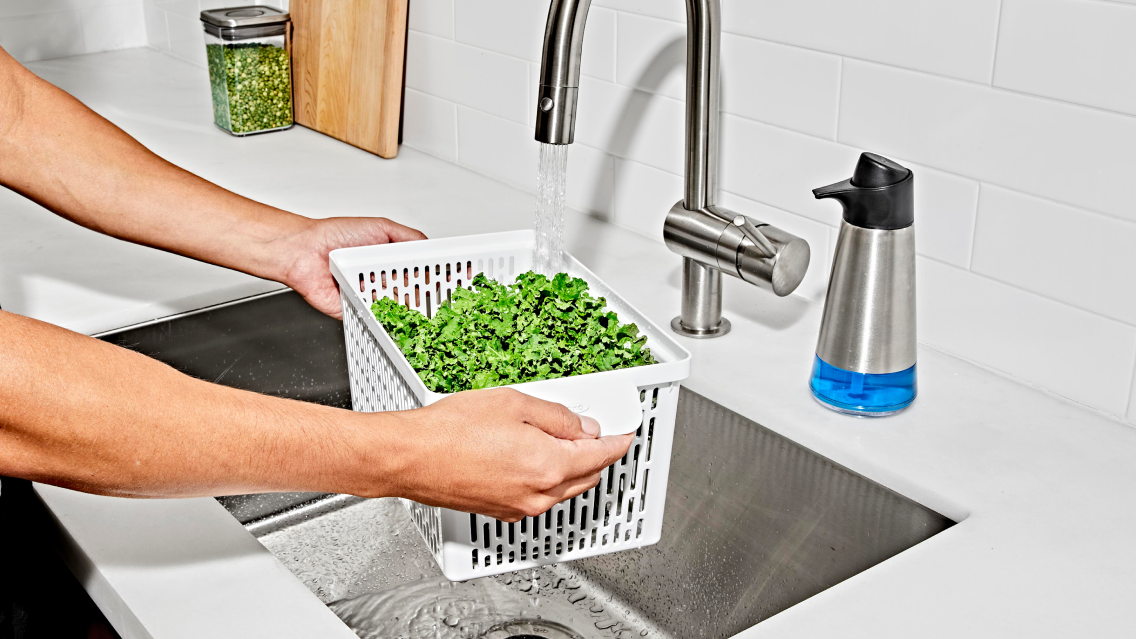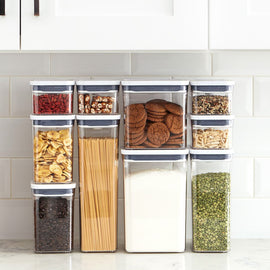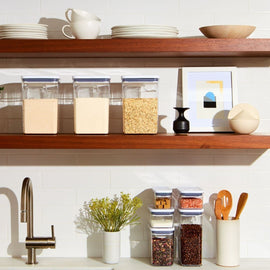Are you confused about how to keep your fruits and vegetables fresh and vibrant? Proper storage is the secret. Yes, exactly. It makes all the difference to know what should be kept in the refrigerator and what should be left on the countertop, as well as how storage containers work. This is all the information you require.
Avoid Pre-Washing Produce:
Pre-washing your vegetables could promote the growth of germs, which leads to food spoiling. Therefore, avoid washing it beforehand and let your Fruits and veggies air dry before putting it in the refrigerator if your grocery shop keeps it in water or sprays it often. Spread it out on a baking sheet covered with paper towels to do this.
Use Containers for Storing Fruits:
Fruits shouldn't be mashed on fridge shelves or in your crisper drawer; instead, they should be allowed to move around. Produce that is still bagged or lays against walls could gather moisture and demise. Fruits should be stored in containers with a detachable basket to prevent food from getting on the sides or bottom of the container.
Check the Temperature of Your Fridge:
If it’s too cold, your produce can freeze. We recommend keeping your fridge at 35-38℉.
Separate Fruits and Veggies:
Remove any rotten berries or damaged apples and discard them since the mold might spread to fresher goods. To slow down the ripening process, separate fruits (which produce ethylene) from veggies (which are ethylene sensitive).
Use Crisper Drawer Wisely:
The crisper drawer in your refrigerator may actually help conserve your produce; it's more than just another storage drawer! A toggle or tiny hole is used to regulate the temperature of many crisper drawers. Fruit hates moisture, so slide the vent open. Vegetables need high humidity, so keep the vent covered to prevent moisture loss. When produce is chopped, the vents remain open regardless of the type.
Balance Ripening and Storage:
For certain items, like avocados and tomatoes, the proper texture and consistency may only be obtained by letting them on the counter at room temperature. Peaches and nectarines are examples of stone fruits that will get dehydrated if they are refrigerated before ripening.
To prevent overripening, keep unripened fruit in the refrigerator after storing it on the countertop at ambient temperature until it's ready.
Store Garlic, Onions, Potatoes at Room Temperature:
Store garlic and onions in a cool, dark location, such as the pantry or on the countertop behind cupboards, as they will begin to sprout if exposed to intense light and become mushy if refrigerated. Potatoes also do best at room temperature since they will turn green if exposed to too much light and their starches will change into sugars if they are refrigerated.
Store and Save Tomatoes Right:
Tomatoes may get squashy if they are refrigerated. Rather, keep them out of the sun and away from your hob on the counter. Apply a silicone saver to preserve the remaining portion if you only use half of one. Use them in puree or spaghetti sauce if they are too ripe, then freeze them in little containers to use in dishes later.
Store Herbs with Care:
Sometimes you'll use up the whole bundle of fresh parsley or basil you bought, but most of the time there are leftovers. Remove any faded leaves from your herbs and place them in the basket of a container that has humidity control and ventilation to keep them fresh.
Keep Berries Dry and Fresh:
Keep your berries dry and well-ventilated since moisture is the enemy of clear, juicy fruit. To accomplish this, choose any berries that show deterioration and then put them back in the original paper towel-lined container




